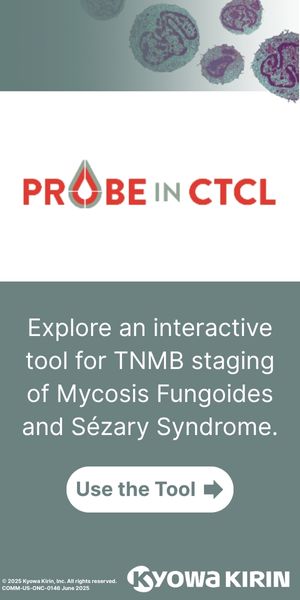Joan Smith, patient with systemic mastocytosis, discusses her diagnostic journey with systemic mastocytosis (SM).
SM is a rare disease, usually caused by mutations in the KIT D816V gene. The disorder is characterized by uncontrolled mast cell proliferation and activation across multiple organ systems. Indolent systemic mastocytosis accounts for approximately 90% of SM. Common symptoms may include anaphylaxis, maculopapular rash, pruritis, diarrhea, brain fog, fatigue and bone pain. Most adults present with skin lesions, usually in the form of urticaria pigmentosa.
Diagnostic Journey
Ms. Smith believes she’s had SM her entire life, citing symptoms sporadically appearing throughout childhood and early adulthood. However, it was not til her late 30s and early 40s that symptoms began to warrant her attention. That started when she awoke to an episode of gastrointestinal symptoms, flushing, rash, and tachycardia. That began a 16 year diagnostic journey.
SM can be difficult to diagnose due to the heterogeneity of symptoms that mimic many other conditions. After that first episode, Ms. Smith thought that she just had an allergic reaction. Following a second episode three weeks later, she went to her primary care physician where bloodwork came back normal and she was referred to a psychiatrist. Determined to figure out what was actually causing her symptoms, Ms. Smith went to St. Louis to see an endocrinologist and allergist, who tested her tryptase levels (a biomarker of SM). However, her levels came back as a false negative for SM and she tested positive for a variety of allergens.
Treatment and Clinical Trial Involvement
For a period of time, Ms. Smith was placed on some medications for allergies that helped relieve some of her symptoms before beginning to worsen. Following a move to Colorado to see if an environment change would help, new symptoms began to appear and she again seeked out the guidance of an allergist/immunologist where she finally got a positive tryptase test and SM diagnosis. Ms. Smith was started on additional medications and higher doses of her previous medications and found a doctor who specializes in SM.
Eventually, these medications also began to stop working and her symptoms progressed, greatly impacting her quality of life. It was then that Ms. Smith was able to enroll in a clinical trial for, then investigational, Ayvakit (avapritinib). Following treatment with avapritinib, her symptoms greatly improved and she continued to use the medications to this day.
Ms. Smith notes the lasting mental burden of disease; overcoming the fear of having a severe reaction and not having medicine available and grieving the time that was lost due to undiagnosed disease and symptom burden.
Advice for Patients and Physicians
Her advice for diagnosed patients is to find specialists in the disease to help with management and treatment plans, finding community and support groups, and becoming aware of personal triggers and doing your best to avoid them. For those who do not currently have a diagnosis, she stresses the importance of taking a break from the exhaustion and frustration of having an undiagnosed condition, but not to give up on finding a solution.
Ms. Smith wants doctors to know that it is important to listen to their patients and that just because they may not be able to figure out a diagnosis right away, they should not jump to the conclusion that someone is suffering from a mental or psychological disorder.
To learn about SM and a new test for patient reporting of mastocystosis control, visit https://checkrare.com/a-new-test-for-patient-reporting-of-mastocytosis-control/

